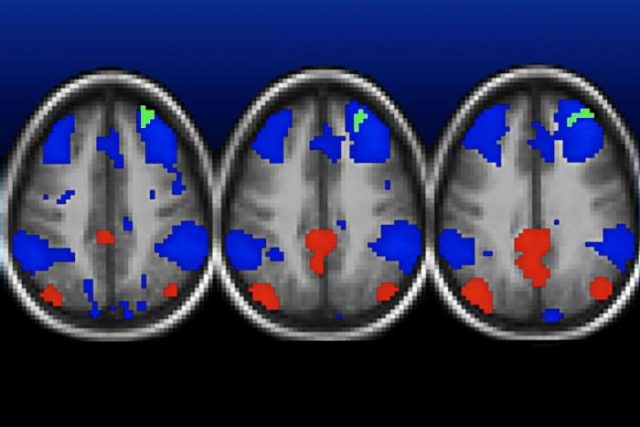Poverty may alter the wiring of kids’ brains
Ars Technica » Scientific Method 2016-01-25

Functional MRI scans show areas in the brains of poor children with normal connectivity highlighted in red and blue, and weakened connectivity shown in green. The areas in green are among several areas -- detailed in other brain scans—where connections are weakened in children raised in poverty. (credit: Deanna Barch)
Growing up poor is known to leave lasting impressions, from squashing IQ potential to increasing risks of depression. Now, as part of an effort to connect the dots between those outcomes and identify the developmental differences behind them, researchers have found that poverty actually seems to change the way the brain wires up.
Compared to kids in higher socioeconomic brackets, impoverished little ones were more likely to have altered functional connections between parts of the brain. Specifically, the changes affected the connections from areas involved in memory and stress responses to those linked to emotional control. The finding, appearing in The American Journal of Psychiatry, suggests that poor kids may have trouble regulating their own emotional responses, which may help explain poverty’s well-established link to depression and other negative mood disorders.
“My take-home message is that poverty gets under the skin,” lead author Deanna Barch, a psychologist and a neuroscientist at Washington University in St. Louis, told Ars. If people weren’t already energized to start addressing poverty and its myriad, deep-seated effects, this should be a fresh call to action, she said.